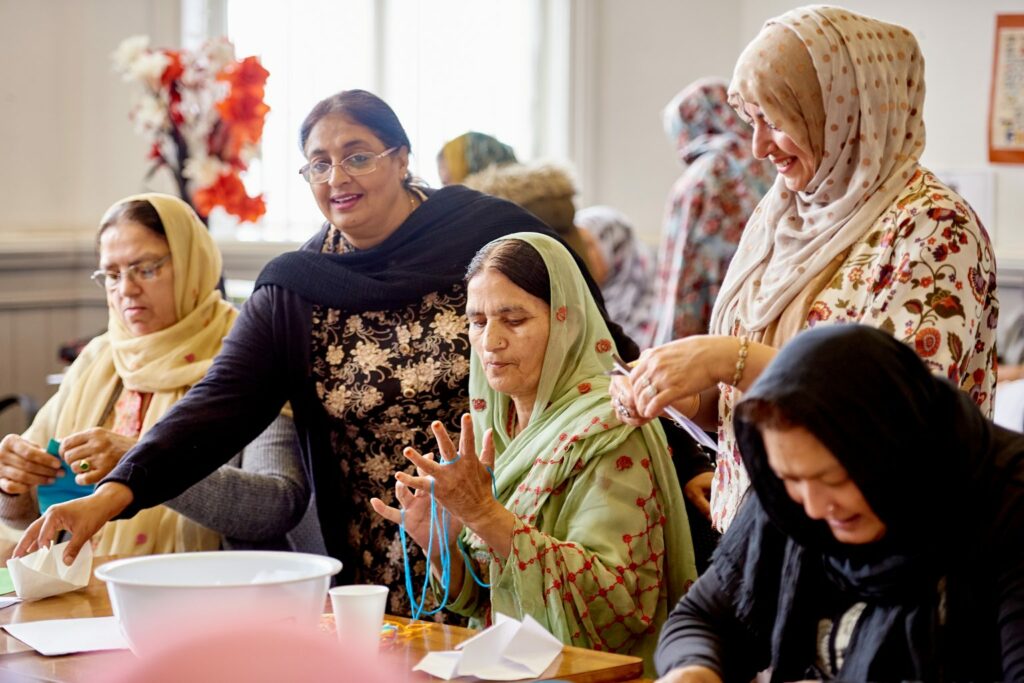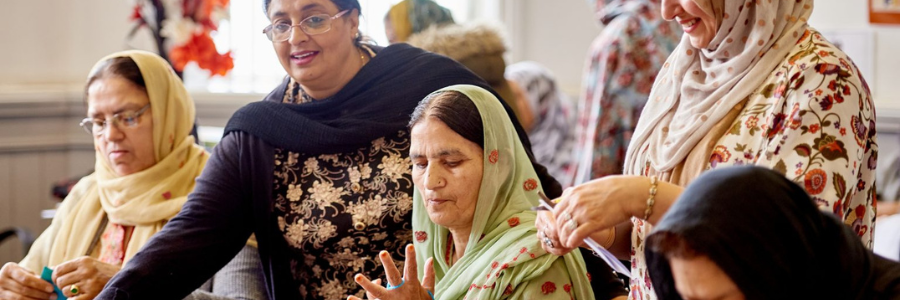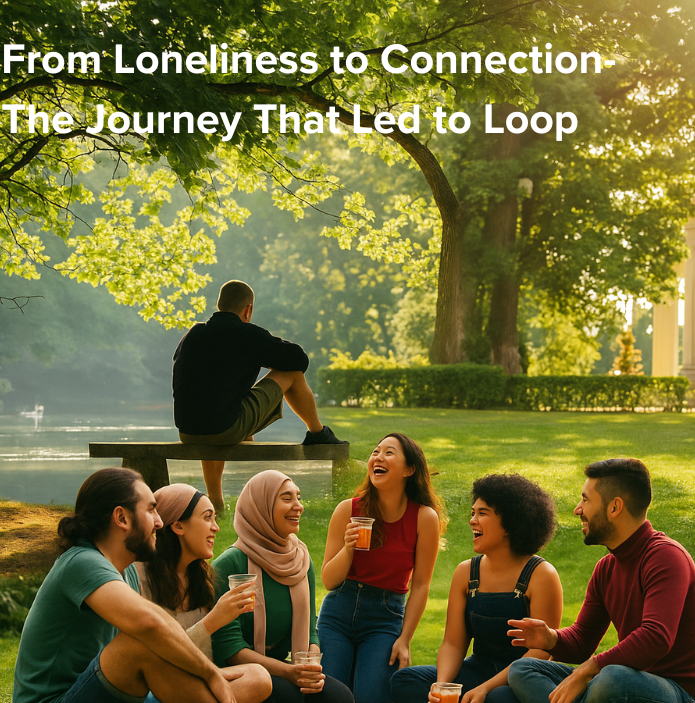Addressing loneliness among women from South Asian communities in Keighley

We heard from Diane and Shaida from Highfield Community Association about two projects helping to address loneliness among older women from South Asian communities in Keighley, West Yorkshire.

Wellbeing groups for older women from the Bangladeshi community
The Mohila (meaning “women” in Bangla) wellbeing groups were established in 2021 following the lockdown. This move came off the back of community research that revealed a deficiency in services for Bangladeshi women aged 60 and above in Keighley.
The groups were set up with the aim of enhancing socialisation, addressing isolation and loneliness, improving emotional, physical, and mental health, and promoting new friendships among a demographic that might not typically go out to make friends.
We recognised that our main base at Highfield Community Centre was not easily accessible for the women we wanted to reach due to their mobility and health, as well as transportation issues. For this reason, we set up up two separate satellite well-being groups within the heart of the Bangladeshi community of Keighley.
Running the Mohila wellbeing groups
For the groups to be successful, we implement a detailed 4-week plan that includes various wellbeing activities, resources, trips and visiting guests. We work in close partnership with external organisations to maximise the support we can provide our members and usually invite these organisations to drop into our sessions if we feel their services would benefit our users.
We have been fortunate in successfully running our sessions, thanks to receiving separate warm space funding which allows us to offer a nice warm breakfast. Providing a warm desi breakfast has been a key success as we have discovered this motivates our members to attend the groups, make new friends, and catch up with old ones.
Most of our members are at the age of receiving a pension, so we have helped them to apply for free bus passes and have enjoyed venturing out on many local bus trips. Due to our groups being set up in schools, we run our sessions during term time, and so during the school holidays we carry out wellbeing calls and have met up in the park for walks.
Members have expressed a strong sense of anticipation and attachment to the sessions, considering them a highlight of their week. The warm and welcoming atmosphere, coupled with the provision of a comforting breakfast, has contributed to a feeling of belonging and family within the group and helped to provide a safe space for open and judgement-free discussions. Some of the comment our members have made include:
- “Fatima and Asma make us feel welcome and we feel like part of a family in this group.”
- “I have a house full of people, yet I feel lonely.”
- “I don’t go back to sleep after our early dawn prayers so I don’t fall asleep and miss this class.”
- “This is our safe place. We don’t feel judged here and can talk freely about anything.”
Wellbeing groups for older women from the Pakistani community
The Colourful Lives Project works with women over the age of 60, particularly from the South Asian Pakistani Community. Most of these women would be the first-generation women who came to the UK in the 1970s – 80s on visas as wives, who have never been employed, stayed at home and didn’t learn English, which resulted in isolation, mental health, and loneliness from early on.
Consultation showed that women had a degree of independence when their children were younger, taking them to school, mosque, shopping, etc, however, when their children got older (14-16 years) this independence went too and they started to stay at home more, therefore being less active and with increasing health concerns.
Running the Colourful Lives project
Shaida, the project worker for Colourful Lives explains how the service works.
“When I took on this role just before lockdown, the numbers attending were really low. However, following the lockdown the group has expanded to around 27 people and it is the loneliness factor which has actually brought them to the group. Since they found out there is a safe space for them, they love coming here, they like taking part in the seated exercises, but more than anything, it’s the social part that they enjoy most. We found that the increase in the numbers attending were actually from the women advertising the group to their own friends.
I find that with the warm food initiative we provide, the women are not always there because they need food. Some are there because of their loneliness. To socialise and have someone to talk to while they eat warm food is significant to them.
In the Sukoon-E-Dil session I run (meaning “peace of the heart”), the types of activities we do include arts and crafts, and pampering. The women who attend the sessions are absolutely hands-on. They come every week and even with the weather being extremely cold recently, we still had around 14 women attend. I was hoping they wouldn’t attend only because some use walking aids and I don’t want them to fall, but it was amazing to see that they still came.
I always ensure there is exercise in the sessions and I do a mindfulness tapping technique with them with deep breathing. We like to say well done to ourselves for taking part and just have lots of positive affirmations to increase our self-motivation. I find this helpful for them as they are first generation into the country and have been extremely hard working all their lives. I know they have had little time for themselves, so these little ‘thank you’s’ are really powerful and motivating for them.
Some of the feedback from the women highlights their gratitude for having a group just for them, mentioning how they appreciate the chance to enjoy quality “me time” – an experience they hadn’t encountered before.”
Establishing meaningful support groups
Before setting up a similar projects of your own, have a clear vision of what is you want to achieve and set realistic goals for yourself. You will also need to carry out your own research for the targeted age group by engaging with existing groups, networking with local organisations, and gathering information through methods like questionnaires and group discussions. Once this groundwork has been laid and you have defined your project or activity, you should then think about promoting it through various channels such as social media, leaflets and posters through local organisations, and leveraging word-of-mouth promotion.
You many encounter numerous challenges when setting up your project, so try to remain open to new ideas. Being able to adapt to changing situations and circumstances as they arise is key.





Responses